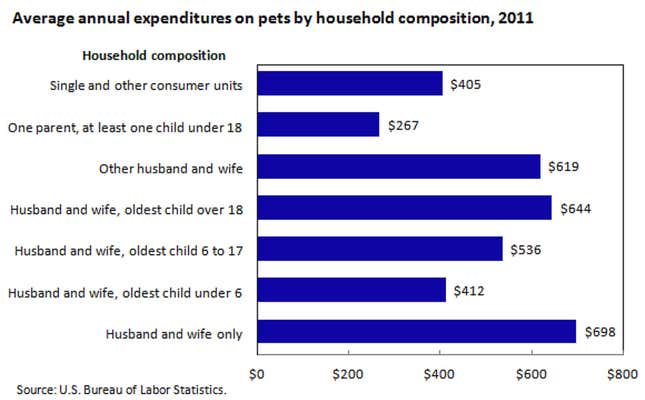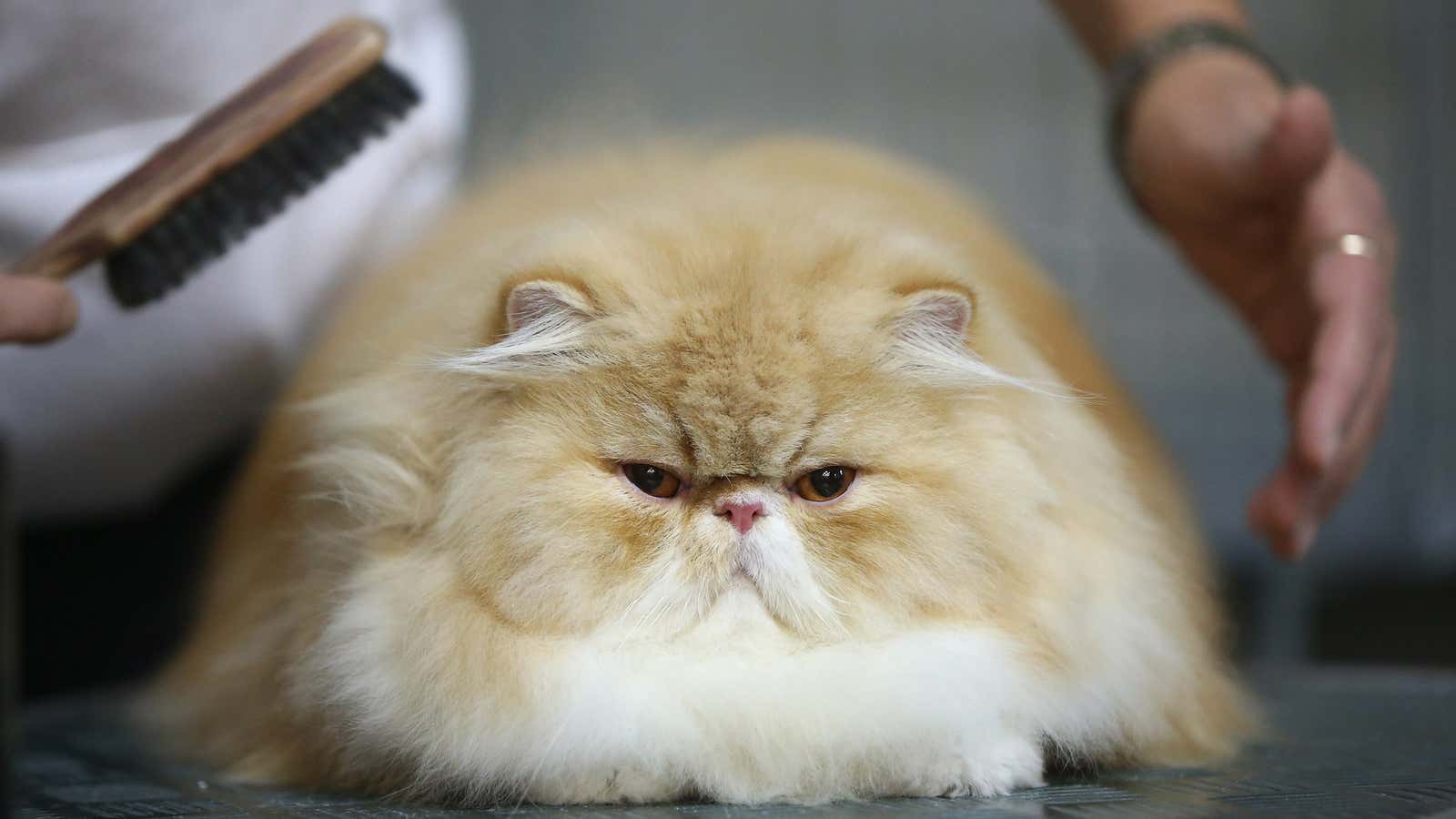The most pampered American pets live with Baby Boomers and childless couples, and single pet owners and single parents are more likely to skimp on kitty and doggy spending.
Owners most likely to buy for dogs (say, little booties on Buddy) are ages 55 to 64, and couples without children, a new analysis by the Bureau of Labor Statistics shows. They spend hundreds of dollars more than those in their 20s and 30s.
Overall, Americans spend about $500 on average, or 1% of their annual budget on their pets. That means they drop more dollars on pet supplies than on beer, vodka and other alcohol. They spend more on pets than on men’s and boy’s clothing. Here’s how that breaks down:

And the actual spending of US pet owners may be much higher than this report indicates because all those who live without animals at home are averaged in as zero. And even people without pets are still buying, since birdseed and falls into the pet food category, notes BLS economist and report author Steve Henderson. He says: “My parents haven’t wanted pets for 20 years. They’re spending copious amounts on bird seed.”
Overall Americans spent $61.4 billion on their pets, almost twice as much as global spending on movie tickets last year.
Surprisingly, rural pet owners bought a lot more for their pets, laying out $716 a year—48% more than central cities owners. One explanation: Urban households spent more on health clubs, movie tickets and sporting events, and other entertainment options, while those are less available in the country.
Henderson doesn’t have the data to prove it, but he believes rural residents much higher spending on pet food indicates they own more dogs and cats—or feed more anyway. He lives in rural Maryland and “people drop off pets out here,” he said. “We have a changing number of cats that we feed.” (He currently has five felines.)
Oddly, more people are bypassing the veterinarian, with one-fourth of pet owners skipping a visit in 2011, according to the US Pet Ownership & Demographics Sourcebook. Dogs are more likely to be taken to the veterinarian than cats.
